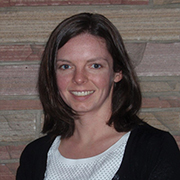A .gov website belongs to an official government organization in the United States.
A lock () or https:// means you've safely connected to the .gov website. Share sensitive information only on official, secure websites.

Volatile methyl siloxanes (VMS) are solely anthropogenic chemicals that have come under recent scrutiny for their environmental persistence and tendency to bioaccumulate. Millions of tons of these chemicals are produced every year. These high-production chemicals have recently come under increased scrutiny due to potential negative environmental impacts. However, constraining the impacts of these chemicals is challenging because the atmospheric degradation of these chemicals is poorly understood despite the fact that >90% of the environmental loading of VMS is in the atmosphere. In this talk, I will discuss our recent work investigating the kinetics and mechanisms of VMS oxidation using laboratory experiments and electronic structure calculations. We find the oxidation by chlorine atom may contribute to VMS oxidation in urban environments and that the presence of the silicon heteroatom allows for atypical reactions that challenge our understanding of atmospheric oxidation mechanisms. I will conclude with a brief overview of recent experiments investigating the aerosol formation from VMS molecules.
Ellie Browne is an Assistant Professor in the Chemistry department at the University of Colorado Boulder and a fellow of the Cooperative Institute for Research in the Environmental Sciences. Prior, she received her Ph.D. in Chemistry from the University of California Berkeley and was a NOAA Climate and Global Change Postdoctoral Fellow at MIT. Recently she has received the American Society for Mass Spectrometry Research Award in 2019, a CU Boulder Provost Faculty Achievement Award in 2022, and was named an ACS Environmental Au Rising Star in 2022. Her current research focuses on understanding aerosol particle formation and growth in order to improve the understanding of planetary radiative budgets of the modern Earth as well as the early Earth and other planetary bodies. Research themes include the chemistry of silicon, sulfur, and nitrogen heteroatoms and the development of new analytical instrumentation and methods.
ALL Seminar attendees agree not to cite, quote, copy, or distribute material presented without the explicit written consent of the seminar presenter. Any opinions expressed in this seminar are those of the speaker alone and do not necessarily reflect the opinions of NOAA or CSL.